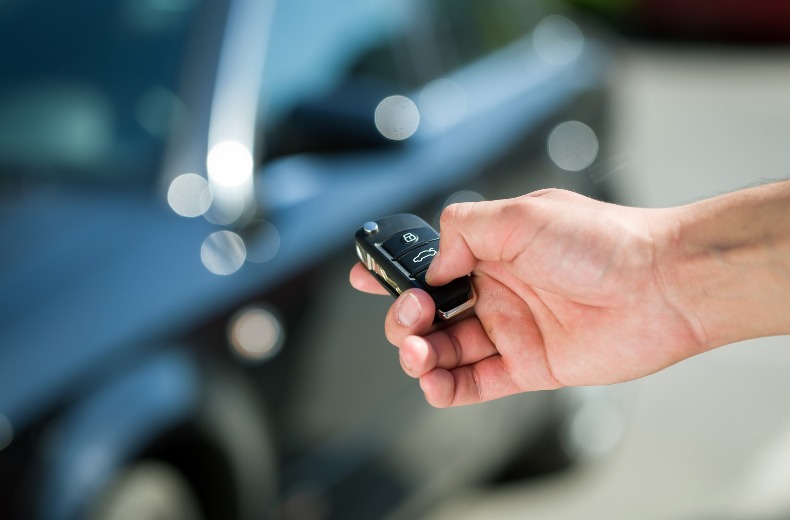You could change the way you store your vehicle, move to a safer neighbourhood, or even change your career… but these options are totally unrealistic for most of us, and misleading your insurance provider with false information could even invalidate your cover.
Instead, here are some practical ideas which could help you lower your premium:
1. Nurture your ‘no-claims’
A no-claims discount is the best way of cutting car insurance costs over time, so look after it and watch your premiums fall.
It might seem obvious, but by simply driving safely and avoiding accidents your clean driving record is sure to bring down your premiums over time.
Find out more about your no claims discount here.
2. Don’t hold anything back
It’s vital that you keep your insurer up to date with any changes in your circumstances (job, address etc) to avoid potential problems in the event of a claim.
If your details are not up to date, you run the risk of making a fraudulent claim which could tarnish your reputation with insurers in the long run.
3. Choose your car carefully
As we know, different makes and models of cars come with different insurance premiums, even for the same driver. It’s worth doing your homework before you buy as it can make a big difference to your premium.
Sporty cars can attract a high premium and often a slightly different model or engine can make a big difference in your favour. It will probably save you fuel too.
If you’re after cheap car insurance then a car with a powerful engine is probably not for you. Use RAC Cars to browse new cars for sale to help find a practical and appropriate vehicle.
4. Pay a higher excess

When you’re getting a quote for car insurance, you will be asked to decide a level of excess – this is the voluntary amount you are happy to pay towards repairs in the event of a claim.
If you set it at £50, your overall premium will be higher than if you have a voluntary excess of £200. The higher the excess, the lower the premium; just make sure you can afford to pay the agreed sum of money in the event of a claim against a repair.
5. Take out Black Box Car Insurance
With Black Box Car Insurance you can prove to your insurer that you deserve to get cheaper car insurance even for a new driver.
What is Black Box Insurance?
It's a way of helping young and new drivers to save money on their car insurance by rewarding safe and responsible driving.
The black box is installed in the car and used to monitor driver behaviour - quite simply, the safer you drive the cheaper your car insurance could be at renewal time.
It might not make your first car insurance policy cheaper but could apply a discount second time around.
Black Box Insurance
Want to pay less for your car insurance? Whether you’re a new driver or just looking to reduce costs, we can help.


6. Ensure your car is safe and secure

Insurance providers like to know that the vehicle being insured is likely to be as secure as possible to avoid the risk of theft. This concerns security inside the vehicle, and where it is stored when not being driven.
If your car is fitted with an alarm, immobiliser or another security device, this may help in reducing the cost of insurance for new drivers. Much like car insurance groups, Thatcham Research has categorised alarms - the higher the rating of the security system in your vehicle, the more money you could save on your car insurance.
There's a more detailed explanation on Thatcham's category alarms here - and a selection of security products available from the RAC Shop.
Where do you keep your car when it isn’t being driven? If the vehicle is kept in a garage overnight, or parked on the driveway of your house, that should result in a saving on your insurance policy.
If you can only park the car on the street, you probably won't see a saving.
7. Choose the right cover
Sometimes the lowest levels of cover are not always the cheapest. It’s always worth talking through the cheapest options with your insurer to ask if volunteering to increase your policy excess will help lower your premiums.
We search our panel of carefully selected insurers to give you a great price. Go online to get a quote.
5 Star Defaqto rated cover
RAC Comprehensive Car Insurance Plus has been given a 5 Star Rating by Defaqto. Get a quote online today.


8. Drive fewer miles
The more you drive your car, the more likely it is that you’ll end up in an accident – it’s a basic principle for car insurers. That’s why an effort to reduce your mileage can help lower the cost of your premium.
For many drivers it might not be possible to cut down on time behind the wheel. Others may have the option to drive less often by sharing a ride to work with a colleague or family member or simply reducing unnecessary trips in the car.
The small change to the way you use your vehicle could lead to long-term savings.
9. Pay annually rather than monthly
When you’re given a car insurance quote you’ll probably notice that it’s cheaper to pay for your policy in one lump sum for the year rather than spreading costs in monthly instalments.
Multiple payments are often more convenient and many of us are happy to pay the extra cash for our cover. However, research has found that paying monthly can add between 6% and 17% to your premium.
If you consider that the added interest costs UK drivers £544m a year, you might feel more inclined to budget in advance and hand over the lump sum at the start of your policy to save cash in the long run.

Instant cover available
• 24/7 rescue at the roadside
• Help to get home if your vehicle can't be fixed
• 5 star Defaqto rated cover

10. Choose modifications carefully
Modifications change the look and performance of cars to suit their owners’ needs. Buying and fitting body kits and improved engines is often expensive and yet many motorists overlook how the changes could impact their car insurance policy.
In-car entertainment systems and phone kits increase the chance of your vehicle being broken into, while powerful engines are seen as a risk on the road. The added dangers will push your vehicle into a higher insurance group making cover more expensive.
Not all modifications will bump up your premium. Parking sensors will reduce your chances of an accident when reversing and fitting a tow bar suggests you’re more likely to drive at slower speeds while you’re hooked up to a caravan or trailer.
11. Take a driving course
Advanced driving courses are designed to develop drivers’ skills to make them safer motorists. They’re a great way for new drivers to prove their competence behind the wheel.
Although you shouldn’t take a course with the sole intention of reducing your premium, passing one may reduce the cost of your policy. It’s best to contact your insurance provider before booking a course to check if the extra lessons will lead to a saving.
12. Check your job title
Insurance providers will charge a higher premium for drivers with stressful jobs or roles that mean you spend significantly more time on the road.
For example, the pressures of work on a high-flying executive could impact their driving ability. Salespeople or delivery drivers who clock more miles behind the wheel are more likely to be involved in an accident and premiums reflect the added risk.
Checking your job title doesn’t mean tweaking your job description to ‘bend the truth’ and avoid a higher premium, especially as this will invalidate your cover. Instead, you should ensure your occupation is updated and accurate – this small admin task might lead to a cheaper premium.
How to get cheaper car insurance FAQs
- What day is best to buy car insurance?
A recent comparison of more than 50 million quotes found that buying insurance 24 days before a renewal date gives the cheapest cover. Organising your next policy 20 to 26 days before it’s needed could save you 40% on your policy.
- Is it cheaper to pay insurance every six months?
Many insurance providers don’t offer the option to pay your insurance every six months. However, we know that paying annually rather than monthly results in savings on interest and making payments twice rather than 12 times a year will probably end up less expensive.
- Can you lie about your occupation on car insurance?
If your insurance provider discovers you’ve knowingly misled them about your occupation your policy will probably be invalidated.
- Does being self-employed affect car insurance?
Self-employed drivers can pay more for cover, especially when arranging business car insurance. What you do for a living also affects your quote.
- Does being unemployed affect car insurance?
If you’re unemployed your car insurance will probably be more expensive.
Insurance companies believe unemployed people pose a higher credit risk and are more likely to make a claim as they’re less able to maintain their vehicles.
- Can you lie about mileage on car insurance?
If you make a claim and your insurance provider decides you’ve knowingly misled them about your mileage they can invalidate your policy and refuse to pay out.
While it’s possible to lie in your application, you could risk problems arranging cover in the future and will undoubtedly pay a lot more money for premiums.
- What is the cheapest car to insure in the UK?
The Ford Fiesta is the best-selling car in the UK and the cheapest car to insure. If you’re hoping to insure a different vehicle, our top 10 cheapest cars to insure right now offers more, affordable options.
- Does the price of insurance go down after six months?
That depends on you and your driving. Most insurance companies tend to work in terms of years when dealing with your no-claims bonus, so you will probably only start seeing reductions after 12 months.
Brand-new drivers with no insurance history are generally the most expensive to insure, so your first premium is likely to be the most expensive before the cost steadily reduces as you build up a no-claims bonus.
- At what age does the price of car insurance go down?
Despite the common belief that insurance premiums fall for 25-year-olds, there is no ‘magic age’ when the cost of cover starts to tumble.
An increased number of years of no-claims will make it easier to find a cheaper deal.
- Does the price of car insurance go down as your car gets older?
That depends on the cost of repairing your car as it ages.
Some vehicles will lose their value over time and could work out cheaper to fix, while parts on some vehicles could become less common, increasing the cost of a replacement.
The technology in our cars can also become outdated and hiring a professional with the appropriate expertise to repair it can end up more expensive.
- Are newer cars cheaper to insure?
Car insurance is issued on a case-by-case basis, but as a general observation, newer vehicles are cheaper to insure compared to second-hand or older ones.
Learner Driver Car Insurance
Only pay for the cover you need until you’ve passed your test. Get learner driver insurance so you can practice outside of your lessons.
















